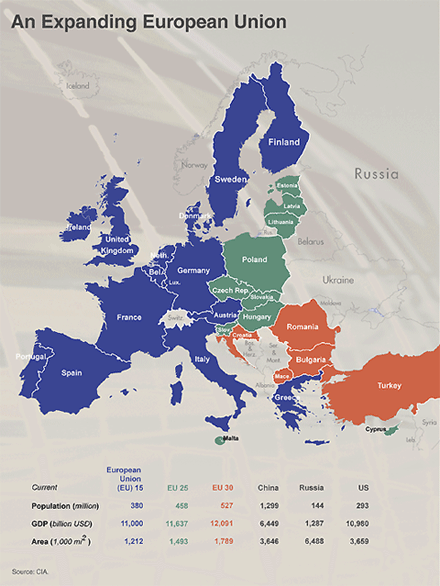Medvedev Tells Euro Zone It Has the Resources

file photoPresident Dmitry Medvedev called for European countries to act more decisively to resolve the regions' debt crisis, as Group of 20 leaders struggled to produce a plan to bail out the euro zone last week.
"I believe that our partners should work much more actively and decisively to ensure order. Otherwise we will all be hostage to these problems for a long period to come," he told participants of the G20 summit Thursday.
Medvedev said the only way out for Europe is to achieve economic stability by itself, but the bloc's governments should "behave responsibly" in order "not to bury their economies." "The European Union has everything [it needs] to achieve this today: the political authority, financial resources and support from many countries," Medvedev said. "I'm sure external help can't be crucial for the euro zone due to the size of the European economy," he said.
The president said Russia has a united position on the issue with other BRICS countries, which along with Europe are interested in preserving the euro as "one of the key reserve currencies."
The BRICS countries should help Europe tackle its financial problems, but this support should be "targeted, comprehensible and transparent," Medvedev told reporters Thursday, adding that "we should understand on what conditions this [help] will be provided."
Medvedev welcomed the decision made by European leaders last month to bolster the size of the bailout fund created by euro-zone countries to fight the debt crisis from 440 billion euros ($606 billion) to 1 trillion euros, but said the governments should agree on the sources to provide funding for the indebted countries, as well as the role of international financial institutions and other countries that are ready to offer their help.
He reiterated that Russia, which keeps almost 45 percent of its international reserves in euros, is ready to provide financial support to Europe primarily through the mechanisms of the International Monetary Fund in line with existing quotas.
Medvedev didn't specify the size of the funds to be provided by Russia, but top Kremlin economic adviser Arkady Dvorkovich said the country's contribution could exceed the $10 billion it will provide through the IMF.
Russia will provide $10 billion in line with its "existing obligation" to contribute to the euro-zone bailout though the IMF, Dvorkovich said.
"It's still unclear whether additional funds are needed. If such a request comes, we'll consider it," he said, RIA-Novosti reported.
Dvorkovich said last week that Russia could also consider the possibility of offering bilateral help to individual countries if the request comes.
Medvedev also pushed for big business to play a leading role in helping the euro zone tackle its problems and ensuring the sustainability of the global financial system, since the heavily indebted developed countries can't do so themselves, unlike the situation in the previous crisis.
The countries that prevented the financial system from collapsing in 2009 had to pay a big price for it, as "the debt burden has bound hand and foot" many governments, Medvedev said.
"They are unable anymore to play the role they were playing two years ago. That's why I'm sure it's big business that should take the leadership burden on itself and ensure the sustainability of the financial institutions," he said.
But he warned against any measures that could negatively affect the banking system, such as introducing a financial transactions tax, which was proposed by Microsoft founder Bill Gates and supported by a number of countries including France, Germany, South Africa and Brazil.
Introducing such tax could result in a suspension of providing interbank loans, "paralyzing the financial system," Medvedev said.
Dvorkovich said the tax wouldn't be "useful" because it didn't correspond with the Kremlin's plans to turn Moscow into an international financial center.
Meanwhile, the G20 leaders achieved little progress in tackling the euro zone's problems and preventing a new wave of financial crisis.
Summit participants agreed to take measures to restore economic growth and stimulate employment, according to a plan published on the Kremlin web site.
They also decided to increase the IMF's resources, and French President Nicolas Sarkozy said the bloc's finance ministers would discuss possible options for doing so in February.
According to the plan, Russia, which will host the G20 summit in 2013, will focus on cutting its budget deficit and reducing inflation, as well as maintaining a certain corridor for ruble rate fluctuations and reducing unemployment, acting Finance Minister Anton Siluanov said.

